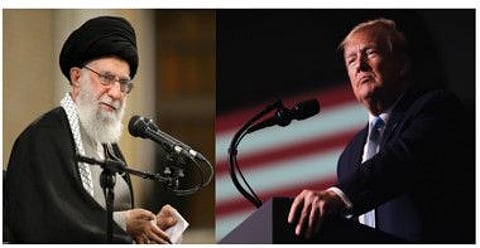Middle East: Time for caution and consideration
No desire from international community for tensions between Iran and US to escalate

As Tuesday night rolled into Wednesday morning across Iraq, some 20 ballistic missiles hit at airbases where forces from the United States and other nations are based. The missiles were fired by Iran and were in retaliation for the killing last Thursday of General Qasem Soleimani, an act directly sanctioned by President Donald Trump on the leader of the Quds Force of the Iranian Revolutionary Guards. The killing of Gen. Soleimani has unleashed a wave of anti-American sentiment in Iran unprecedented since the days of the 1978 revolution.
Indeed, the ballistic missile launches were the most serious direct assault by Iranian forces against US targets since the seizure of the US embassy in Tehran in November, 1979. Let’s hope there is where this current dangerous stand-off between and Tehran and Washington ends.
This is a time where wisdom is needed and where time must be given for diplomatic channels to be used to full effect. From past experience in this region and beyond, there is undeniable evidence that talks and de-escalation measures do work if given timeGulf News
Here in the Gulf, one of the immediate consequences is that some airspace has been closed and some flights re-routed — precautionary measures that are occasionally implemented. What is encouraging is that the response from the Oval Office to the missile attacks has been muted and there has been no ratcheting up of rhetoric on Twitter that would pour fuel on a situation where wise heads and cool temperaments are needed along with diplomatic words and gestures to de-escalate any potential for more conflict.
No escalation
Certainly, the comments coming from Tehran seem to suggest that the missiles were a carefully calculated response to the killing of Gen. Soleimani. While Iran’s Supreme Leader Ayatollah Ali Khamenei addressed a huge crown in Qom, the country’s Foreign Minister Javid Zarif said Tehran “did not seek escalation or war” after the missile launches.
What is clear over these past weeks is that there is a desire from partners up and down the Gulf, from across the wider Middle East region, and from nations beyond, that this rise in tensions between Tehran and Washington be tempered by caution and non-confrontation.
This is a time where wisdom is needed and where time must be given for diplomatic channels to be used to full effect. From past experience in this region and beyond, there is undeniable evidence that talks and de-escalation measures do work if given time. That is the essential element here.
As Dr Anwar Mohammed Gargash, the UAE’s Minister of State for Foreign Affairs, has noted, de-escalation is both wise and necessary — and a political path towards stability must follow.



